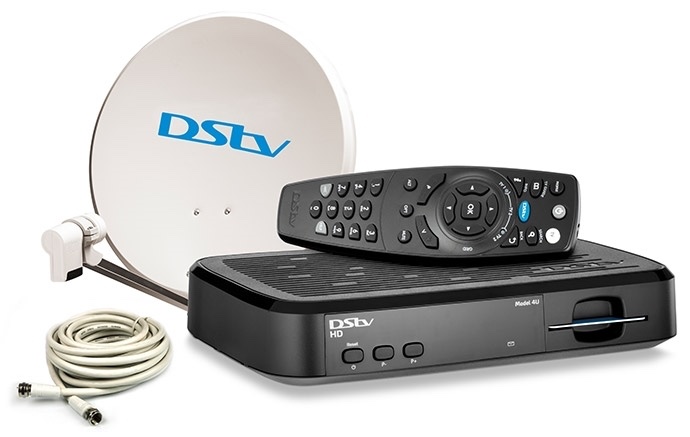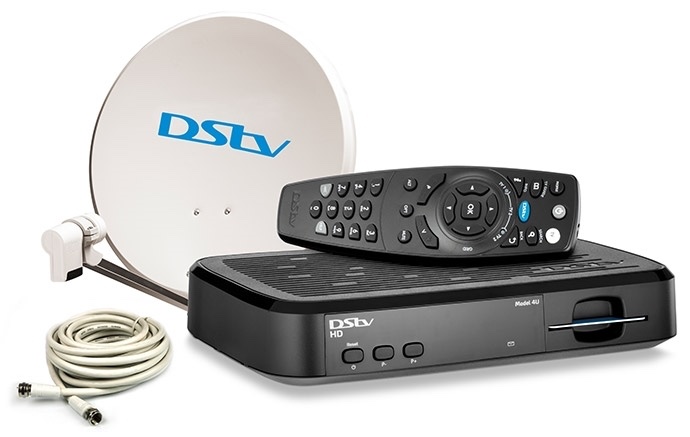Physical Address
304 North Cardinal St.
Dorchester Center, MA 02124
Physical Address
304 North Cardinal St.
Dorchester Center, MA 02124

In a major strategic move aimed at regaining its lost market share and winning back millions of subscribers, DStv, Nigeria’s leading pay-TV provider under MultiChoice Group, has announced a 40 percent reduction in decoder prices, effective November 1, 2025. The company described the decision as part of a broader effort to make premium entertainment more accessible and affordable to Nigerian households amid rising economic challenges.

Image of Dstv Decoder
According to a company statement, the new initiative will take effect nationwide from the beginning of November. The price of the DStv HD decoder, which previously retailed at ₦25,000, will now cost approximately ₦15,000, representing a 40% reduction. This offer will reportedly include installation services and a one-month subscription on selected packages.
The company emphasized that the adjustment is a direct response to the economic realities faced by millions of Nigerians. The pay-TV giant acknowledged that inflation, foreign exchange fluctuations, and rising living costs have affected the ability of many subscribers to keep up with their monthly payments, resulting in a significant decline in active users.
“We recognize the current economic hardship and remain committed to giving our customers greater value for their money,” DStv’s management noted in a public statement. “This price review on our decoders is a reflection of our desire to make quality home entertainment accessible to all Nigerians.”
Over the past few years, DStv has experienced a noticeable drop in subscriber numbers across Nigeria and other African markets. The decline has been attributed to several factors, including the rising cost of subscriptions, increased competition from streaming services such as Netflix, Showmax, and YouTube, and the economic strain on consumers.
Industry analysts estimate that DStv lost over two million active subscribers between 2023 and 2025, particularly in Nigeria, South Africa, and Kenya — its largest markets. Many former customers cited affordability issues and frequent price adjustments as major reasons for discontinuing their subscriptions.
With this 40% price slash, DStv hopes to reignite customer interest and attract new users who previously viewed the service as a luxury. The new offer also aligns with the company’s wider strategy to re-position itself as a family-friendly and cost-effective entertainment brand.
The pay-TV industry in Africa has become increasingly competitive, with a growing number of alternatives offering flexible and cheaper viewing options. The rapid rise of internet-based streaming platforms has changed how consumers access entertainment, allowing users to watch content on demand and on multiple devices.
Additionally, local competitors like Startimes, TStv, and Free-to-Air satellite services have gained traction among price-sensitive customers. These services often provide lower subscription fees or even free channels, posing a significant threat to DStv’s traditional model.
Recognizing these shifts, DStv’s management has been working on expanding its digital footprint through DStv Stream an online streaming platform designed to compete directly with global streaming brands. The decoder price reduction is therefore a complementary move to strengthen both its hardware and digital market presence.
Nigeria’s economic situation has been particularly challenging in 2025. High inflation, rising fuel prices, and currency depreciation have reduced consumer purchasing power. Many households have been forced to cut down on non-essential expenses, including pay-TV subscriptions.
By reducing decoder prices, DStv aims to ease the entry barrier for new customers and enable more families to access its wide range of channels covering sports, movies, news, documentaries, and children’s entertainment.
Analysts believe the move could also help stimulate sales during the festive season, a period when demand for entertainment products typically rises. The timing of the announcement coming just before November and December suggests that DStv is targeting increased household viewership during the holidays.
The announcement has generated mixed reactions from the public. Many Nigerians have praised the company for taking a positive step toward affordability, especially after several years of price hikes. Some customers on social media described the move as “long overdue” and “a sign that DStv is finally listening to consumers.”
However, others expressed skepticism, saying that while the decoder price reduction is welcome, subscription fees should also be reviewed downward to make the service truly affordable. For many users, the recurring monthly payments remain a greater financial burden than the initial cost of the decoder itself.
Industry observers agree that DStv will need to complement the price slash with creative subscription packages such as pay-per-view or flexible daily plans to compete effectively in today’s entertainment landscape.
Telecom and media analysts see the 40% price slash as a smart business strategy designed to boost DStv’s market penetration and rejuvenate its customer base. The decision aligns with a broader shift in consumer behavior, where affordability and convenience are the dominant purchasing factors.
Some experts believe that the company’s long-term survival depends on its ability to blend traditional satellite services with digital innovation. Reducing hardware costs gives DStv a chance to re-establish its dominance, especially in semi-urban and rural areas where internet connectivity remains limited.
“By lowering decoder prices, DStv is removing the first obstacle to access. This move could translate into millions of new sign-ups, particularly if coupled with affordable content bundles,” said a Lagos-based media economist.
The impact of this decision is expected to ripple through the broader entertainment and technology sectors. Retailers and distributors anticipate increased demand for DStv decoders, while local installers are likely to benefit from higher installation orders.
Furthermore, the initiative could trigger competitive pricing among other pay-TV providers, compelling rivals to introduce discounts and promotional offers to retain their subscribers. This increased competition may ultimately benefit consumers by making premium entertainment more affordable across the board.
Beyond pricing, DStv reaffirmed its commitment to delivering top-tier entertainment experiences through continuous content upgrades, high-definition broadcasts, and improved customer service. The company stated that it will keep investing in local programming to promote Nigerian films, sports, and cultural content that resonate with domestic audiences.
In recent years, DStv has introduced innovations such as voice-enabled remotes, 4K ultra-HD viewing, and enhanced mobile streaming through the DStv app. These innovations, coupled with the price reduction, position the brand to maintain its leadership in the African pay-TV industry.
The announcement that DStv will slash its decoder prices by 40% starting November 1, 2025, marks a pivotal moment in Nigeria’s pay-TV market. The move reflects both a strategic adjustment to economic realities and a bold attempt to reconnect with customers who had drifted away due to affordability concerns.
As competition intensifies and consumer expectations evolve, DStv’s latest price slash may serve as the catalyst that redefines its brand identity from a premium-priced service to a more accessible, customer-friendly entertainment provider.
Ultimately, the success of this initiative will depend not only on the reduced hardware cost but also on whether DStv can continue to balance affordability, quality content, and technological innovation in an increasingly competitive media environment.